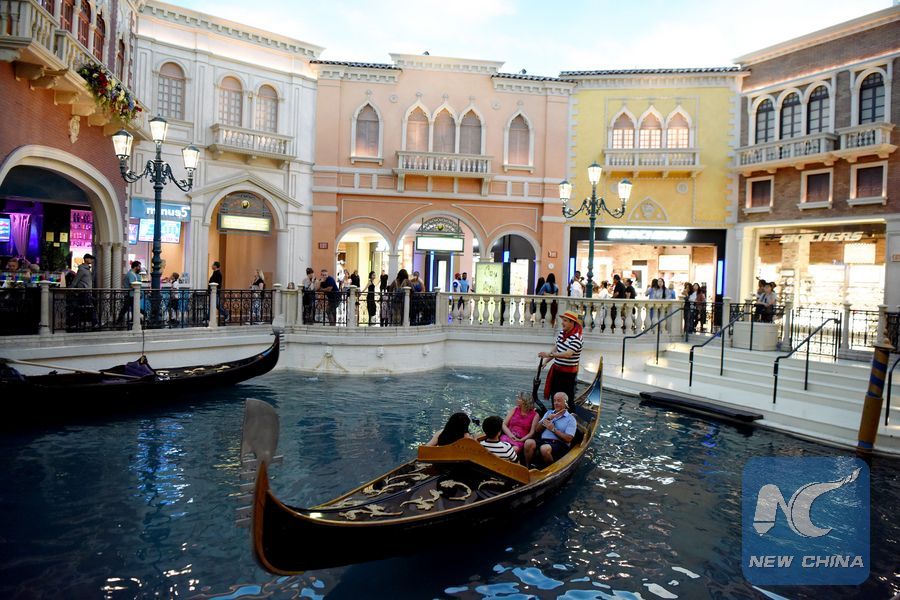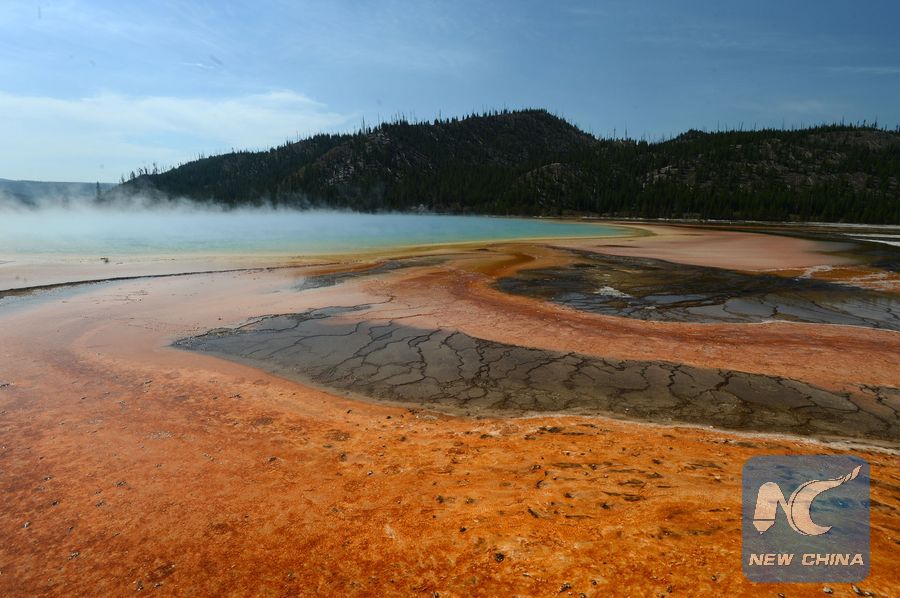
People visit Disney's Magic Kingdom Park during a welcome event prior to the 2010 International POW WOW in Orlando, Florida, the United States, May 16, 2010. The annual premier international marketplace for travel to the United States gathers over 1,000 U.S. travel organizations and worldwide tourism operators.(Xinhua/Zhang Jun)
NEW YORK, June 11 (Xinhua) -- Slapping additional tariffs on Chinese imports has a huge impact on American travel goods businesses as China has always been U.S. companies' first-choice supplier, a business leader has said.
Nate Herman, director of government relations at the U.S. Travel Goods Association, told Xinhua in a recent interview that tariffs on Chinese goods have already taken a toll on the U.S. travel goods industry and led to damage.
"We pay tariffs ranging from 8 percent to 20 percent, depending on the type of travel goods, so with 25 percent punitive tariffs on top ... our members are forced into a situation that they have to either raise prices or basically eliminate their margins, and if they raise the prices, then there's concern about lowering sales," which would in turn stifle hiring, said Herman.
On May 10, the United States increased additional tariffs on 200 billion U.S. dollars' worth of Chinese goods, which include U.S. imports of travel goods from China, from 10 percent to 25 percent, and has threatened to raise tariffs on some 300 billion dollars' worth of Chinese imports yet to be hit.

Visitors ride a boat at the Venetian Resort in Las Vegas, the United States, May 12, 2019. Las Vegas is located in the state of Nevada in the west of the United States. It is most commonly known for its gambling resorts and nightlife. (Xinhua/Han Fang)
Herman, whose association represents about 250 manufacturers and retailers in the country's travel goods industry, said about 82 percent of all travel goods sold in the United States -- luggage, backpacks, handbags, totes, wallets, brief cases, smart phone cases and other travel accessories -- are imported from China.
Vietnam, India and Cambodia currently rank number two, three and four respectively, in supplying U.S. travel goods companies and stores, he said.
Calling China "the first-choice supplier," the senior executive attributed the large amount of U.S.-China collaboration in the industry to the good quality, reasonable price and great innovation of the Chinese products.
He pointed out that tariffs are hitting the U.S. travel goods industry, where 90 percent are small and medium-sized businesses.
Shifting supply chains to other countries is not a realistic option, he said, as building supply chains somewhere else is costly and will take time, and more importantly, "nobody has the capacity of China to produce the travel goods."
As a result, U.S. businesses and consumers will have to absorb the burden.

Photo taken on Aug. 19, 2013 shows the scenery of Grand Prismatic Spring in Yellowstone National Park, the United States. Established in 1872, Yellowstone was the first national park in the world and is known for its wildlife and many geothermal features. (Xinhua/Wang Lei)
According to a report from Tariffs Hurt the Heartland, a bipartisan campaign against the levies, increasing duties on Chinese goods to 25 percent would cost a U.S. family of four 767 dollars annually and could lead to a loss of over 934,000 jobs in the country.
Joining numerous business leaders from other industries that have voiced opposition against the U.S. administration's tariff moves, Herman also called on a resolution to U.S.-China trade issues, thus easing the concerns of people from both sides since last year.
"I hope that eventually both sides will see that a trade war does not serve anyone's interest and only hurts the people in each country," he said.

